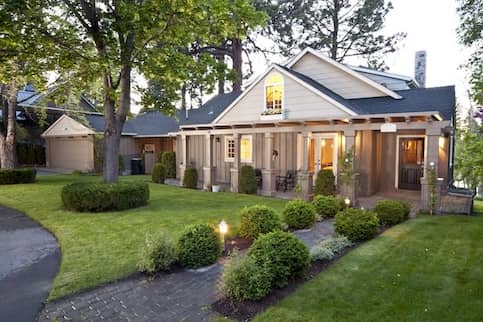Did you know your calendar can play a role in helping you get the best purchase price for the home you want? The time of year you buy a home can impact how much you pay for it.
We don’t need to tell you homes are expensive. If keeping an eagle eye on your calendar will help shave dollars off the asking price, it’s worth exploring the best time of the year to buy a house.
Key Takeaways:
- Home prices are usually highest in May, June and July and lowest in December, January and February.
- In addition to the time of year, broader factors like the economy and mortgage rates can impact home prices
- Every season offers benefits and drawbacks to home buyers
What Time Of Year Is Best For Home Buying?
If you want to choose from the maximum number of homes available for sale, the best time of year to buy is during the spring and summer months, from May to July.
If you don’t mind choosing from a smaller inventory of homes and want to avoid bidding wars, shop for a home during the winter. You may be able to buy a house at an even lower price the day after a holiday (think: Thanksgiving, Christmas or New Year’s) because there are traditionally fewer people buying homes then.
To strike a balance between price and inventory, the best time of year to buy a home may be around late summer and early fall because sellers who haven’t sold their homes may be more eager to make a deal before the colder weather rolls in.
What’s The Worst Time Of Year To Buy A House?
“Worst” is a harsh way to put it. There’s no worst time of year to buy a house. Each month offers advantages and disadvantages.
If your goal is to save money, May, June and July would be the worst months to buy a house. If your goal is to look at the widest variety of homes and attend as many open houses as possible, the worst time of year to buy a house will be the winter months, December, January and February, when inventory drops like the temperature.
What’s Your Goal?
Buy A Home
Discover mortgage options that fit your unique financial needs.

Refinance
Refinance your mortgage to have more money for what matters.
Tap Into Equity
Use your home’s equity and unlock cash to achieve your goals.
What’s The Cheapest Month To Buy A House?
Generally, home prices are lowest in January because demand is low, inventory is low and fewer buyers are looking for homes. While January might be the best month to get the lowest price on a home, you pick from a smaller selection of homes.
What Else Impacts Home Prices?
It would all be so simple if the time of year were the only factor that affected home prices. But that’s not the case. The timing of your purchase is a valuable strategy, but it isn’t the only thing that impacts home prices.
Whether it’s sweater weather or sandal weather, you should also keep these broader considerations in mind while you’re home shopping:
Inventory Shortages
Inventory shortages create intense buyer competition, leading to a seller’s market. When there are fewer homes for sale, buyers will compete and bid (and bid again) to win the seller’s signature on their purchase agreement. Inventory shortages can happen in local markets or on a national scale.
Mortgage Rates
Mortgage rates have a significant impact on the housing market. When rates rise, buyers can afford less home. For example, a $320,000 30-year mortgage with a 6% interest rate costs $391 more per month than the same loan with a 4% rate. It’s a hefty $140,760 difference in interest over the life of the loan.
Higher mortgage rates can price out buyers on some homes, who then may choose to sit on the sidelines while they wait for mortgage rates to drop.
The Economy
How home buyers feel about the economy will influence home prices. When the economy is strong, home prices are usually high. If a buyer is doing well in a booming economy, they will likely feel confident about the housing market and may be more willing to pay more for a home.
In a rocky economy, that confidence is hard to find. Buyers typically start exercising greater restraint while they’re home shopping. That caution reduces buyer demand, and home prices plunge.
Personal Readiness
It’s not all about dollars and cents. Home buying is a personal journey, and everyone’s journey is unique. Your home may be the largest financial investment you ever make. Make sure you’re ready to spend the money, time, energy and effort that goes into buying a home.
Take The First Step To Buying A Home
Find a lender that will work with your unique financial situation.
The Bottom Line
If you live in a part of the country where seasons are a thing, take advantage of them to find the perfect home or buy a home at the perfect price for you. But you can’t rely exclusively on the time of year to buy a home. You need to be sure you’re ready to buy. Hire a real estate agent to help you navigate the home buying process – and, yes, keep an eye on the calendar.

Jonathan Pressman
Jonathan is a REALTOR® and a former journalist and insurance salesperson. He holds an MA in writing and covers a wide range of financial topics, including real estate, alternative investments, personal finance and more. Jonathan is committed to translating complex industry jargon into a readable, concise format that everyone can understand.












